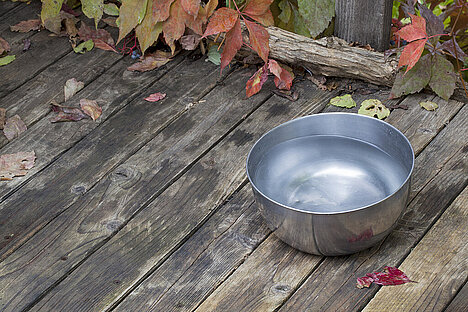Dehydration

Dehydration is a condition in which the body does not have enough water to carry out its normal functions. Dehydration can lead to serious health problems in dogs, such as kidney failure, shock or even death. In this article, you'll learn how to recognize and prevent dehydration in your dog.
What are the causes of dehydration in dogs?
Dehydration can have various causes, such as
- Vomiting or diarrhea
- Fever or infections
- Overheating or heat stroke
- Diabetes or other metabolic disorders
- Kidney or liver disease
- Lack of water intake
How do I recognize dehydration in my dog?
Dehydration can manifest itself through various symptoms, such as
- Dry nose, mouth or eyes
- Sunken eyes or skull
- Decreased skin elasticity
- Decreased urine production or dark urine
- Lethargy or weakness
- Increased heart rate or respiratory rate
To test skin elasticity, you can lift a fold of skin on the back of your dog's neck between two fingers and release it. If the skin quickly returns to its normal position, your dog is well hydrated. If the skin returns slowly or remains stationary, your dog is dehydrated.
How do I treat dehydration in my dog?
If you suspect your dog is dehydrated, you should take him to the vet immediately. Your vet can determine the cause of the dehydration and initiate appropriate treatment. Treatment may vary depending on the severity of the dehydration and your dog's health. Possible treatments include:
- Fluid infusions under the skin or into the vein
- Electrolyte solutions to drink or injections into the mouth
- Medication to treat vomiting, diarrhea or infections
- Dietary adjustments or nutritional supplements
How can I prevent dehydration in my dog?
To prevent dehydration in your dog, you should take the following measures:
- Make sure your dog always has access to fresh and clean water
- Encourage your dog to drink regularly, especially in hot weather or after exercise
- Avoid exposing your dog to direct sunlight or high temperatures for long periods of time
- Check your dog's weight and general condition regularly
- Have your dog regularly examined and vaccinated by a vet
Dehydration is a serious problem that can endanger your dog's life. If you recognize and treat the signs of dehydration early, you can save your dog a lot of suffering and improve his quality of life.
The authors assume that a veterinarian should be consulted if an animal is ill and that medication should only be taken after consultation with a doctor or pharmacist. Only an individual examination can lead to a diagnosis and treatment decision.
We help you find the nearest vet → This way